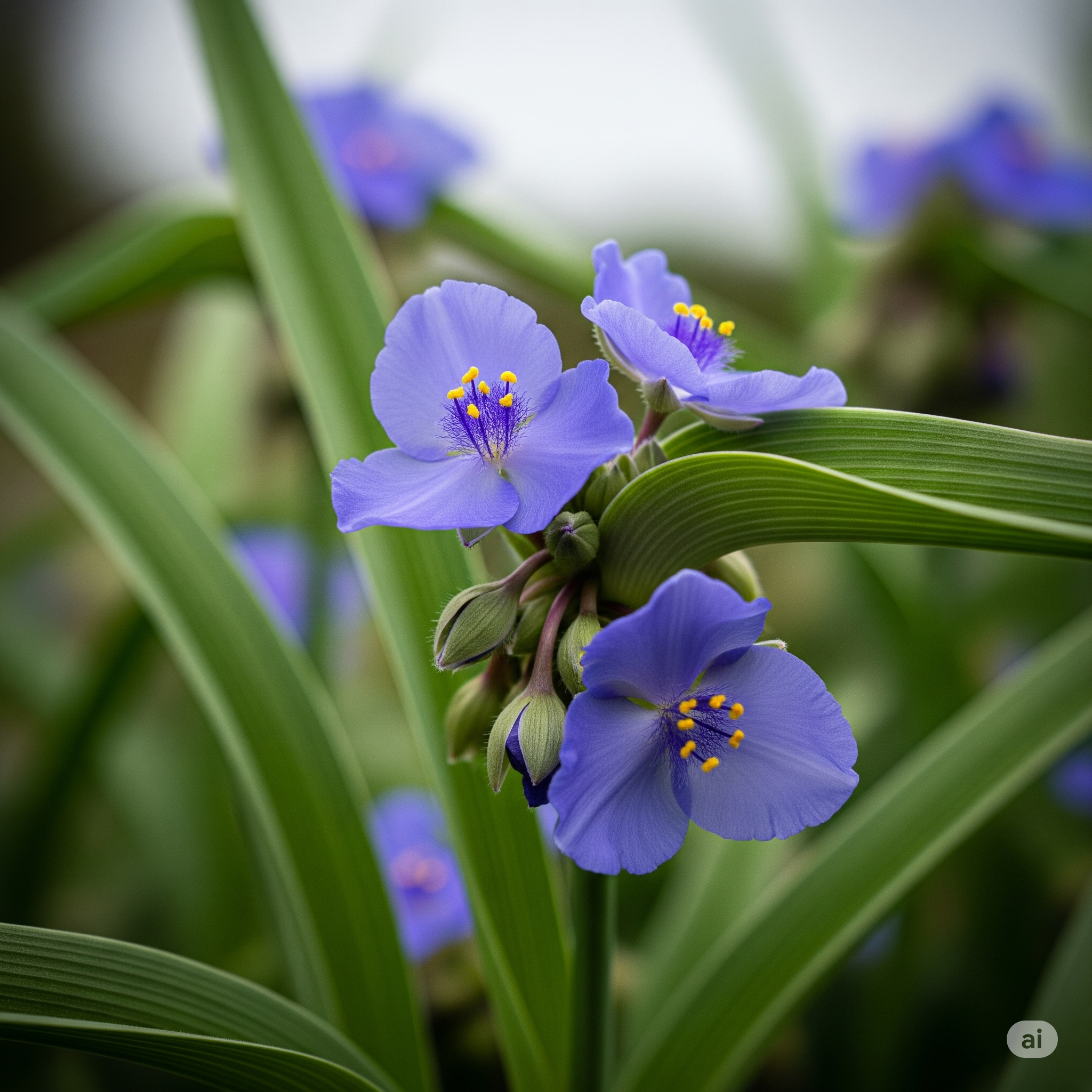
Alert for North Carolina Farmers: Watch for Tropical Spiderwort, an Invasive Weed
North Carolina -- North Carolina agricultural officials are urging farmers across the state to be vigilant in inspecting their fields for Tropical Spiderwort (Commelina benghalensis), an aggressive invasive weed recently discovered in eastern North Carolina.
While the latest confirmed sighting was in a Craven County cotton field, the weed poses a statewide threat to over 20 economically important crops.
What is Tropical Spiderwort?
Tropical Spiderwort, also known as Benghal dayflower, is a perennial herb native to tropical Asia and Africa. It's listed by the USDA as one of the world's most troublesome invasive weeds due to its rapid growth, ability to outcompete crops for resources, and resistance to common herbicides.
This plant can spread rapidly through both seeds and vegetative fragments. It produces two types of seeds: aerial seeds from flowers above ground and underground seeds on burrowing rhizomes. This dual reproduction makes it particularly difficult to control. Even small pieces of the plant, when broken off by cultivation or equipment, can root and establish new infestations. The weed can also be introduced to new areas via floodwaters, migratory birds, or contaminated farm machinery.
Why is it a Concern for North Carolina Agriculture?
Tropical Spiderwort thrives in moist, fertile conditions and full sun, but it's adaptable to a wide range of soil types and moisture levels found across North Carolina. Its aggressive growth allows it to form dense mats, smothering low-growing crops and pastures. This competition for light, water, and nutrients significantly reduces crop yields.
Crops particularly vulnerable to Tropical Spiderwort include soybeans and cotton, among more than two dozen others. In states like Georgia, it has become the most problematic weed in cotton fields. The economic impact can be substantial due to decreased productivity and the increased costs associated with difficult and expensive control methods. Furthermore, this weed can act as a host for certain nematodes and plant viruses, adding another layer of threat to agricultural health.
How to Identify Tropical Spiderwort
Accurate identification is crucial, as Tropical Spiderwort can resemble several native dayflower species. Here are key characteristics to look for:
Leaves: Broadly elliptical, less than twice as long as they are wide, with a rounded edge. They often have reddish hairs near the tip and on the leaf sheath.
Above-ground Flowers: Small, with two larger and one smaller purple petal. These are present from spring into fall.
Underground Flowers: Small, white flowers on burrowing rhizomes (underground stems). This is a distinctive feature not found in common lookalikes.
Growth Habit: It can be a creeping or upright herb, forming dense mats or pure stands up to 15 inches long.
For comparison, a common lookalike, Asiatic dayflower, typically has tapered leaves at least twice as long as they are wide, coming to a point, and lacks the underground flowers.
What to Do if You Find It
The North Carolina Department of Agriculture and Consumer Services (NCDA&CS) emphasizes that farmers are the first line of defense. Early detection and rapid eradication are vital to prevent widespread establishment, which would dramatically increase the cost and difficulty of control.
If you suspect you have found Tropical Spiderwort in your fields:
Do not disturb the plant. This can spread seeds or plant fragments, worsening the problem.
Take clear photos of the plant, including close-ups of leaves, stems, and any flowers (above or below ground if visible).
Note the exact location, including GPS coordinates if possible, and an estimate of the infestation's size.
Immediately contact your local county extension office. They can provide assistance with verification and advise on the appropriate next steps for management and reporting. You can find your local office by visiting the NC State Extension website.
Maintaining vigilance and reporting suspicious plants will help protect North Carolina's agricultural industry from the significant threat posed by Tropical Spiderwort.
WNCTimes
Image: AI Generated by WNCTimes


 How to resolve AdBlock issue?
How to resolve AdBlock issue? 